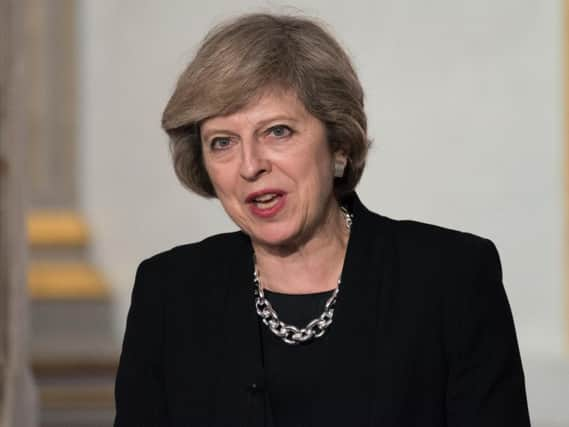NATIONAL: Prime minister to address MPs over Syria bombing


The Prime Minister is expected to face angry MPs after launching military action without securing the support of the Commons.
But she will say the UK joined the United States and France in co-ordinated strikes following the chemical weapons attack in Douma to "alleviate further humanitarian suffering".
Advertisement
Hide AdAdvertisement
Hide AdMrs May will ask for an emergency debate to allow more time for discussion in a nod to the fury among MPs at not being consulted, but she is not offering a vote.
'There is broad based international support for the action we have taken,' she will say.
It comes amid reports that Russia has launched a 'dirty tricks' campaign in response to the strikes.
Whitehall sources have confirmed a 20-fold increase in 'disinformation' spread by Kremlin-linked social media 'bot' accounts since the strikes, according to The Daily Telegraph.
Advertisement
Hide AdAdvertisement
Hide AdForeign Secretary Boris Johnson said the UK has to 'take every possible precaution' to prepare for possible revenge cyber attacks on targets like the NHS and electrical facilities.
Jeremy Corbyn has called for the introduction of a War Powers Act to stop governments launching military action in most circumstances without the backing of the Commons.
The Labour leader said chlorine has been used by 'a number of parties in the conflict' in Syria as a weapon and questioned the legality of the airstrikes.
The Prime Minister will tell MPs today that the strikes were in the national interest because the use of chemical weapons cannot be normalised, including in the UK.
Advertisement
Hide AdAdvertisement
Hide AdShe will say: 'Let me be absolutely clear: we have acted because it is in our national interest to do so.
'It is in our national interest to prevent the further use of chemical weapons in Syria - and to uphold and defend the global consensus that these weapons should not be used.
'For we cannot allow the use of chemical weapons to become normalised - either within Syria, on the streets of the UK or elsewhere.'